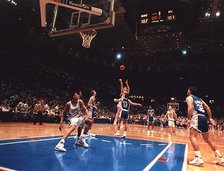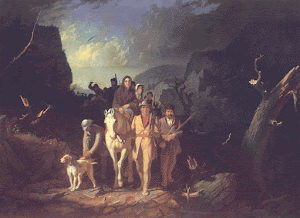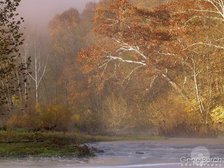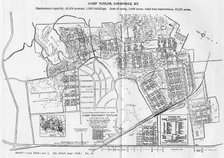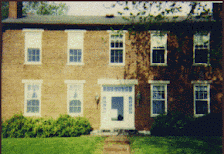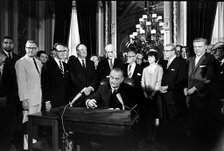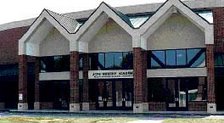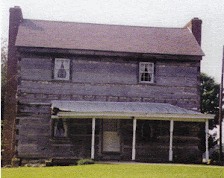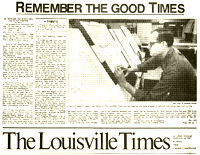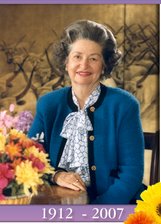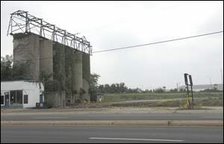Six-O. Our sixtieth post. Sixty is one of those numbers which has some special place in my life. I was born in 1960. The other numbers in my birthday have a relation, at least to the number six, if not sixty. Nine, Two, and Three have a six hidden in them. 9/3x2=6. 6x2-3=9. 9x2/3=6. Its one of those numbers thing again.
Since April 1984, I have been calling out numbers (and prefixed letters) as a Bingo Caller at my church, Holy Family Catholic Church. I was trained to be a bingo caller - I know you are saying "they get trained?" with some degree of unbelief - by the late Pete Habeeb, who called at Holy Family as well as the Highland American Legion Post on Bardstown Road. I've known Pete my whole adult life. I worked for him in different capacities, including a stint as the night manager of his restaurant Min's Cafe (Dirty Mins) on Story Avenue in 1989, 1990, and 1991. I also wrecked his 1973 Chevrolet pickup truck once, pulling out into traffic in front of our church and clipping some woman in a big old Oldsmobile. His youngest son, now a horse trainer, and I were friends in high school and his oldest daughter, Sherry who works for Dr. Bennett in Camp Taylor, and I have been friends for nearly 20 years. I also rented an apartment once from his second youngest son, David, for a few months. Pete died last year, on October 1.
In Bingo, Pete taught me to say "six-o" for sixty and "five-o" for fifty, to distinguish those words from "sixteen" and "fifteen," which in a bingo hall, with 250 people chattering away, simultaneously playing gin rummy, reading a novel, smoking a cigarette, drinking a beer, opening pull tabs, and talking on a cell phone, can seem to sound a lot alike. It is something I have done ever since. "Gee-Sixty -- Six-O." Another old Bingo caller friend is Norb Weisemann, although I haven't seen Norb in some time. We called together at Bellarmine College (where I rolled up most of my college credits, after transferring from UK and before transferring to Spalding). We also called some at Saint Therese's in Germantown, where the Bingo caller is housed in an upstairs "pit" of sorts, looking out over the crowd in the gym below. Norb's signature number is B-11, which coming from him sounds like "bee-ee-oh-ull-lev-in." It takes him a while to get B-11 out, but if you ever heard him once, you wouldn't forget his extended syllabication of what should be a four syllable combination. Sundays are Bingo nights at Holy Family. Tonight, for the first time in several years, we are changing the program some. I'm not sure what changes are coming; I was just told they would be made tonight. That will no doubt create some criticism and panic as bingo players like to think they are very set in their ways, but the truth is, they will go along with any change you make, as long as they have a chance to win. And, everyone has a chance to win. It won't be as late a Sunday night as it has been for a while, since the clocks were moved forward last night, thus moving an hour of our lives from this weekend to one sometime in November when we get the 2:00 to 3:00 am hour returned.
I started yesterday morning in a different time zone, Central, in Oak Grove, Kentucky, the suburban strung-out-along-a-highway community which serves the Fort Campbell Army Reservation in southern Kentucky. Most of the acreage of Fort Campbell is actually in Tennessee. But because the post office happens to be in Kentucky, Kentucky gets credit for the good work the women and men of Fort Campbell do in service to our Republic. On those unfortunate occassions when an American in uniform gives the ultimate sacrifice of service, it is Kentucky which mourns the loss as the nation identifies Fort Campbell as part of Kentucky. The suburban stringtown of Oak Grove becomes Clarksville upon crossing into Tennessee. But Clarksville differs from Oak Grove in that further out the highway, there is a real town, an old river city, perched in a curve of the Cumberland River, complete with a riverwalk, old and new buildings, an ancient looking original town on the waterfront largely destroyed by a tornado in the 1990s, and a state supported university, Austin Peay, where the athletic teams are called the Governors, after the gentleman named Austin Peay, who served as Governor of Tennessee from 1922 until his death in 1927. He is the only Tennessee governor ever to die while in office. As I recall, my cousin, Greg Austin (a coincidence in names) attended college there playing basketball and baseball after a successful high school career in those sports at Lafayette High in Lexington. Greg is known around Lexington as a musician, among other things. He is one of the cousins in my family with whom I am familiar, but the use of the word cousin is misleading. I have no first cousins whatsoever. Greg's grandmother and my great-grandmother were half-sisters, through their mother, Anne Choate Brawner Collins. But, I digress.
I was saying Clarksville is a real city, with its suburb to the north simply serving as an extension of Oak Grove, Kentucky, the only difference being you are in a different state, with a different area code, and a different zip code. I'll note that all of Fort Campbell carries a Kentucky Zip Code, starting with a 4 like the rest of Kentucky, including the majority of the acreage, which, as I said, is in Tennessee, where all zip codes start with the number 3. The highway along which these strung out communities are strung is US 41A, or Alternate 41, as they call it. Louisville has an Alternate 60. Does anyone know where it runs?
Alternate 41 serves as the main road between Hopkinsville, Kentucky (where Governor Austin Peay was acutally born) to Clarksville (where Peay made his political career), then onto Nashville, then south and then east, where it joins US 41 (and I-24) up on top of Monteagle Mountain in Monteagle, Tennessee. That is the big hill you cross over between Nashville and Chattanooga. The eastbound lanes of I-24 are on the southwest side of the mountain, while the westbound lanes are on the northeast side. I-24 should probably be labelled as a north-south route instead. But, again, I digress. From Hopkinsville to just north of Clarksville, US41A is called Fort Campbell Boulevard.
If someone were to pick you up from Alternate 41 in the Oak Grove-Clarksville area and drop you back down along Dixie Highway in the Radcliff/Fort Knox area, you may not be able to tell the difference. The same sorts of businesses serve both areas from non-descript 1950s-1960s strip mall type centers, loaded up with used car lots, fast food joints and "Chinese banquet halls," mobile home dealers, pawn shops (especially dealing in guns and knives), a large number of older mobile home parks, and their modern day equivalents, inexpensive apartment houses, all advertized in both English and Spanish. US 41A itself, like US 31W in Hardin County, is three or four lanes in each direction, with a median. The similarities are honestly remarkable.
Separating Oak Grove, Kentucky from Clarksville, Tennessee, at least on the east side of the road (as Fort Campbell runs for several miles on the west side) is KY 400, called State Line Road. State Line Road actually follows the stateline for about 1/2 mile, crossing over the Illinois-Central Railroad, where it juts about four blocks northward into Kentucky, along one of those old mobile home parks, called "Edgeoten." Creative! After another 90 degree curve, it follows east over to the Clarksville-Pembroke Road which is KY 115 (at least in Kentucky). This State Line Road (KY 400) is one of two such roads, and I know there are more, including one near Guthrie, where they do just that - run along the state line. The houses on the southside of KY 400 are in the 931 area code and Clarksville Zip Code, while those along the northside are in 270 and the Oak Grove zip code. The house numbers are similar, but not exactly related. Clarksville numbers the entire first four blocks as two blocks. Kentucky numbers it as four blocks, so that Saint Michael the Archangel Catholic Church is in the 400 block on the odd side, while across the street is a house numbered 228. I mentioned the State Line Road to the east in Guthrie; several counties to the west is another one of these state line roads, running west along KY 129 from Dukedom in Graves County to Fulton in Fulton County. Driving east along the same route, one is in the Tennessee counties of Obion and Weakley. If you were to cross over the yellow lines several times (assuming there are no badge and gun wielding officers of the law around), one could change jurisdictions any number of times. It would be similar to driving in and out of the old Louisville City Limits (now the Louisville Urban Services District) along Hikes Lane between the Buechel By-Pass and Taylorsville Road. The jurisdiction changes eighteen times. But now that we have Merger, and other than the fire district lines still being there, the taxing district lines still being there, the precinct lines still being there, and the city and county police operating on different radio frequencies and thus not communicating, those old Louisville City Limit lines are a thing of the past.
After returning from the Central Time Zone to the Eastern one where I normally am, I had to chance to have several bowls of chili, serving as a judge in the Bullitt County Democratic Party's Mayor's Cook Chili Cookoff. I served in this role with State Representative Larry Belcher, Democrat of the 49th, one of the House seats we took back in the '06 elections. Larry defeated Mary Harper (who is older than Jim Bunning), the lady who had defeated him a few years earlier. The event drew some of the statewide candidates, including my candidate, Jefferson County Attorney Irv Maze who is running for Lieutenant Governor with Jonathan Miller, who was stuck down in the the Central Time Zone in Paducah. Bruce Lunsford, Gatewood Galbraith, and Steve Henry also attended, as well as Bruce Hendrickson who is running for Secretary of State (with an opponent, Madonna White, who like me is an alum of Durrett High School) and Todd Hollenbach, who is a candidate for Treasurer. You will recall several weeks ago I was concerned about Jack Wood, a longtime Republican now registered as a Democrat, being the only Louisvillian in that race. Todd is an attorney from Louisville, two months older than me, and a friend since we were teenagers. There were about 80 to 100 people there to enjoy six different recipes of chili, five of them made by the mayors of Shepherdsville, Lebanon Junction, Hillview, Pioneer Village, and Mount Washintgton. Joetta Calhoun is the Mayor of Mount Washington and her chili recipe was judged Best! She got a wonderful trophy and accolades from the crowd. A cake auction was held with most of the winning bids put in by the politicians, after some coercing from the auctioneer, former Shepherdsville Mayor Joe Sohm. The event was held at the Bullitt County Shriners Club off KY 44 in Mount Washington.
My evening came to a close last night at the home of a friend, Nick Wilkerson, who hosted his annual fete at his home, actually a mansion, on S. Third Street, on "Millionaire's Row" in Old Louisville. The party ran late and I'll probably need that hour between 2 and 3 back long before November.

